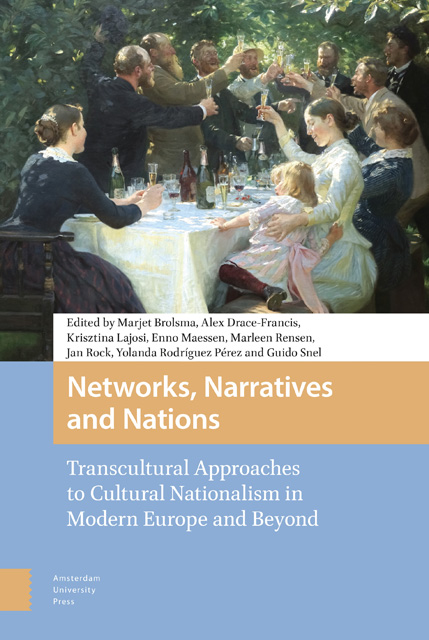 Networks, Narratives and Nations
Networks, Narratives and Nations Book contents
23 - Ordinary Eyesight?: Cultural Comparisons between Ireland and Wales
Published online by Cambridge University Press: 16 November 2022
Summary
Abstract
Is it possible to see Ireland from Wales? And can Wales be glimpsed from the east coast of Ireland? The question resonates through the two cultures and enables a fresh perspective on the question of Irish-Welsh cultural connections along with a topographically grounded approach to the imaginative work of comparison itself: what it means to see one country from the perspective of another.
Keywords eyesight; travel; literature; Celticism; Ireland; Wales
Comparisons between Ireland and Wales are foundational to Celtic studies as it is practised in universities, a methodological assumption that should sit well with Joep Leerssen's insistence on the necessity of a “cross-national comparative approach” to the study of national cultures. And yet comparative research between Ireland and Wales has tended to be confined to prehistoric and medieval contexts, largely concerned with legend, literature and philology.
Perhaps the proximate nature of the Ireland-Wales case deprives it of a degree of interest: two smallish countries separated by a narrow sea and joined by centuries of shared political experience within the same archipelago. Those very likenesses further make it difficult to grasp the asymmetries born of modernity: the traumas of famine in Ireland, Welsh hostility toward immigrant Irish labourers who in turn were ignorant of the growth of organized labour in Wales, the cultural differences between Non-Conformity and Catholicism. But then again, even as we consider the cleavages wrought by eighteenth- and nineteenth-century developments, from the Industrial Revolution to famine and revolution, we encounter the near contemporaneous role of the first and second Celtic revivals in covering over these splits and fractures. Perhaps the best-known example of this process is the publication of Matthew Arnold's On the Study of Celtic Literature, an essay that hymned eternal Celtic affinities even as the Fenian cause of independence gained support in Ireland, Britain and the United States.
These patterns of connection and disconnection are threaded through the modern history of Ireland's relationships with Wales. When the Irish scholar Cecile O’Rahilly won a prize at the 1920 Barry National Eisteddfod for her essay Ireland and Wales: Their Historical and Literary Relations, she remarked that there was “scant sympathy between the Irish and Welsh people.”
- Type
- Chapter
- Information
- Networks, Narratives and NationsTranscultural Approaches to Cultural Nationalism in Modern Europe and Beyond, pp. 285 - 294Publisher: Amsterdam University PressPrint publication year: 2022


